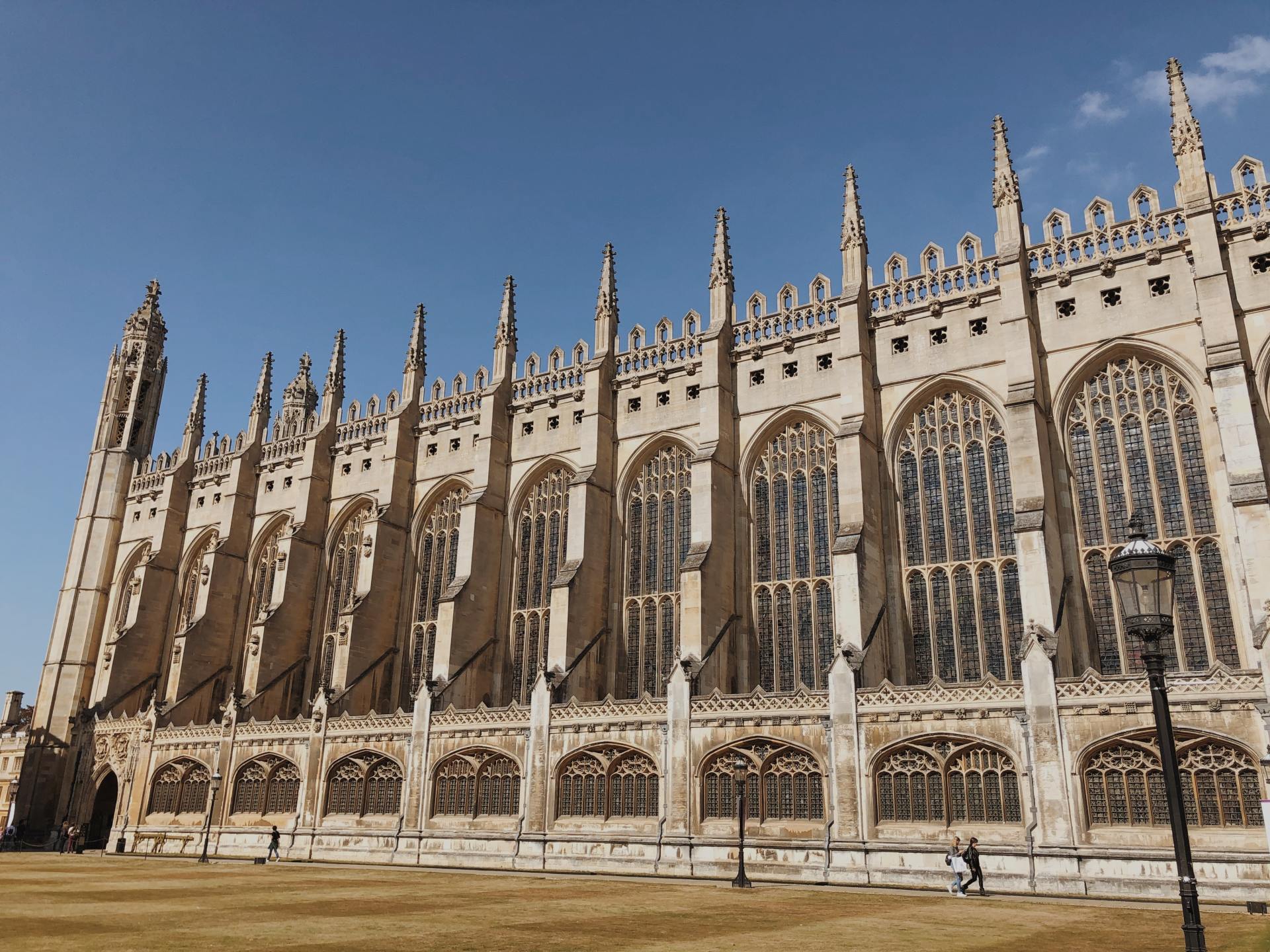Scriptural Sermons
Old Testament: I Samuel

Nabal was a fool. How can I be so sure that Nabal was a fool? Because the word Nabal in Hebrew means fool. So yes, Nabal was fool. And why was Nabal a fool? He was a fool, clearly, because he was uncivil. Nabal happened to be a man of great wealth. He was possessed of three thousand sheep and one thousand goats. But this fool and his money were not soon parted. Nabal maintained his vast flock over a vast wilderness with a vast number of shepherds. David and his men by chance encountered Nabal’s operation. Now it bears repeating that whenever we are talking about the Old Testament, we are talking about violent times. Truth be told, all times are violent times. Read the news if you seek confirmation of this. All times are violent times because we are violent creatures. But regarding the Old Testament, we are talking about a certain type of violent times. I tell my students in the biblical studies class I teach each semester that I will give them extra credit if they will watch the Netflix miniseries Godless . Now why would I plug the Netflix miniseries Godless, particularly in a biblical studies class? It is because Godless is a more recent and more familiar depiction of the type of violent times of the Old Testament. Godless is set in the Old West. You all have some sense of the Old West. Outlaws, show downs, shoot outs, saloon brawls, brothels, gunslingers, horse rustlers, train robberies – all pitted against the local sheriff. That’s the type of violent times of the Old Testament. Certain conditions produce this type of violent times. It doesn’t matter whether it’s the Old Testament or the Old West. When you have people living a rough and ready existence off the land with little centralized authority and sparse law enforcement it is going to produce this type of violent times. The point is, David and his men by chance encountered Nabal’s operation. Had it been anyone but David he would have just terrorized or killed the shepherds and helped himself to the flock. But that’s not what David did. He did the opposite. David actually protected the shepherds and their flock from others who would do them violence. This was David after all. He was not molded by his violent times. He was not molded by anything. David broke the mold. He broke the mold because he could see beyond it all to the truth. It’s a pity that men such as David are one in a billion. At any rate, David and his men made a wall of protection around the shepherds and their flock day and night. David gleaned from the shepherds that their master was Nabal, and so his messenger approached Nabal for a small favor. Since it was a festival day, he asked Nabal for a few sheep so they could celebrate the festival day with a feast. Now remember, David could have just taken the sheep by force. Anybody else would have. But he approached Nabal and asked for them, and asked for them with great civility, “Peace be to you, peace be to your house, and peace be to all you have,” he entreated Nabal. What was Nabal’s response? He met David’s civility with his own incivility. His response, if you forgive the directness of my speech, was along the order of, Who the hell do you think you are asking me for my sheep? This was not just incivility. It was egregious incivility. Because it was David, after all, asking him for his sheep; David, who at this point in his career was King Saul’s most valiant warrior -- renowned throughout the kingdom. David for his part was outraged by Nabal’s response -- outraged because Nabal’s response was outrageous. David was so outraged that he was ready to kill him. And there is an important lesson here for us. When someone insults us, yes, we are going to be outraged. That’s ok. Again, we are violent creatures. It’s hardwired in us. But we also are capacitated to master it. We can be outraged, but we can master it. We must master it. Whatever it takes. For me what helps to master it is to process the outrage with a sympathetic listener. When someone sympathizes with my outrage it soothes me precisely because it sympathizes with me. This is what David did. Nabal had a wife named Abigail. She was the opposite of a fool. David was soon to praise her for her good sense. She brought him the sheep he requested and then some, every imaginable provision for a lavish feast. And she sympathized with outrage. For his incivility, he’s rightly named fool, she said to David. But he is not worth the guilt that would besmirch you should you spill his blood. And David mastered his outrage. Nabal, of course, got what was coming to him. When, arising after a night of drunken carousing, he learned what Abigail did, he was so enraged he had a heart attack and died. David married Abigail, and the world was relieved of a fool. Nabal was probably remembered for what he was, or probably closer to the mark, he was probably not remembered at all. I can scarcely imagine Abigail in the arms of David holding a torch for him. The Old Testament is teaching us a lesson here. It’s a hard lesson, and it’s a blunt lesson. The lesson is that if you are uncivil, you are a fool. You are a fool not just because you create disunity. Not just because you create hostility. Not just because you create trouble. You are a fool because you lack the prudence to act in your own interest, because there are consequences to being uncivil. You lose your reputation. You lose regard. You lose respect. And the world will count itself well rid of you. And there are no exceptions. It doesn’t matter whether you are positive your cause is just, and the opposing cause is not. It doesn’t matter whether the times are uncivil. It doesn’t matter if someone was uncivil to you first. It doesn’t matter if you’re in a bad mood. It doesn’t matter if you think you got the short end of the stick in life. It doesn’t matter if you are power up or power down. It doesn’t matter what role you have been cast to play in the human drama. It does not entitle you to be uncivil. Because Jesus Christ set the bar much higher than civility. He set the bar at love across all divides – divides of race, divides of class, divides of religion, divides even between enemies. This I command you, that you love one another. He set the bar at love inspired by him and made possible by his Spirit. That’s our ultimate goal as his disciples. So can we not at very least be civil to each other, for Christ’s sake? Amen.

King Saul was a tragic figure. This is a statement about which there is no room for argument. The facts speak for themselves. Saul descended into madness and led the army of Israel to the brink of destruction at the hands of the Philistines, destruction halted, ironically, only by his suicide in battle, and this only after he had witnessed the slaughter of his three sons. And that wasn’t even an end of it. The Philistines found his remains and desecrated them. They hung his armor in their temple, and they hung his body, after they had decapitated it, on the wall of their fortress. On the basis of these facts, one could hardly argue that Saul was a heroic figure. No, King Saul was a tragic figure. There is no room for argument. Where there is room for argument, however, is as to the question why Saul was a tragic figure. What was the flaw within him, as tragedy presupposes, that led to his demise? Various theories have been advanced, but for me at least none fit the bill. There is the theory that the flaw within Saul was jealousy, jealousy of David to be precise. And in truth Saul was jealous of David. David, after all, was one of the greatest men in human history. I personally wouldn’t want him to happen into my court were I king. Directly after he happened into Saul’s court he slew Goliath, who had paralyzed the army of Israel with terror. Then Saul’s son Jonathon transferred his birthright to him. Then Saul’s daughters Merab and Michel fell in love with him. Then David outdid Saul on the field of battle. Then he won the hearts of the people of Israel. Yes, Saul was jealous of David, but David came to his court in the first place to play for him on his lyre because Saul had become tormented. No, Saul’s jealousy of David exacerbated the flaw within him, but the flaw within him preceded his jealousy of David. There is too the theory that the flaw within Saul was mental illness, and in truth Saul became mentally ill. I am convinced that he became what we would call today a schizophrenic. His jealousy deteriorated into paranoia, which in turn deteriorated into delusions, which in turn deteriorated into mania. He grew obsessed that David was out to get him, so he attempted by a careless toss of his spear to kill him and make it look like an accident. When that failed, he sent David on suicide missions against the Philistines. When David proved seemingly indestructible, he grew more blatant in his attempts on David’s life until David was forced to flee his court. But David’s departure was not enough for Saul. His country at war, he set off in reckless pursuit of him, slaughtering en route anyone he believed had abetted him. And when finally, through dereliction of duty, the Philistines began to close in on him, he groveled and sniveled at the feet of a medium begging her to tell him what to do. Yes, Saul became mentally ill, but his mental illness came even later than his jealousy, and both were preceded by his torment. So why did Saul become tormented in the first place? Surely that is the key to uncovering the flaw within him that made him a tragic figure. The answer, I think, is a subtle one, which is why the theories don’t fit the bill. Saul was anointed king on the strength of his youthful promise, and he had plenty of it, as so many do. But when the blush of youth passed and the long years of maturity ensued; when he found himself a person just like the rest of us -- a person with a given personality, a given set of traits, a given set of strengths and weaknesses, he thoughtlessly presumed that the prestige of his office was all that he needed to rule. And when he was confronted by the strenuous challenges of that office and did not rightly meet them, he began to incite the notice of those around him. Saul began to sense their growing disrespect. He sensed that they were turning on him, that he was losing his grip, but he couldn’t discern why. This is why he became tormented. The flaw within Saul that made him a tragic figure then was that by some blindness or some dullness or some cluelessness he failed to realize that he was responsible to become and remain the stuff of his office. But he failed at that responsibility, and he lived, and died, to count the cost. King Saul. A tragic figure. Not exactly a positive role model, but if you think about it the Bible offers us as many negative role models as positive ones. There is Abraham, but there too is Lot. There is Moses, but there too is Aaron. There are the prophets, but there is too the entire people of Israel. This is because we can learn as much from negative role models as from positive ones. And indeed we have much to learn from Saul. Of course, the stakes, mercifully, are lower. We are not kings, and the Philistines are not at the gates. But the rules of life that applied to Saul apply to us as well. For many of us our youthful years were, as were Saul’s, years of promise -- everything came easily. The world, as Matthew Arnold put it, “lied before us like a land of dreams.” But whether our youthful years were years of promise or not, the years of maturity now ensue, and we find ourselves people like everyone else, each with our own set of givens. Yet at the same time, we all occupy offices that are very prestigious, to my mind, just as prestigious as the office of king. I refer to the office of mother, of father, of grandparent, of wife, of husband, of son, and of daughter; to the office of friend and colleague, to the office of vocation and avocation. But, again, as with Saul, the prestige of these offices is not sufficient. We are responsible to become and remain the stuff of those offices. And if we grow dull or blind to this responsibility, then we will become problems for those around us. No, we won’t be driven to fall on our swords, but we will become problems for those around us, nonetheless. We will cause relationships to become skewed or even inverted. The spouse will become a dependent. The boss will become divested of any genuine authority. The child will become the true parent. Those around us may avoid or reject us, or they may tolerate or accommodate or enable us out of pity or duty. But failing in our responsibility to become and maintain the stuff of our offices, we will become their responsibility. Surely Jesus had something like this in mind when he told the parable of the talents. The third servant was endowed with a measure of talent, not as much as the others, not a kingly amount, but he was nonetheless responsible for it. And what did he do with it? He buried it. What’s buried tends to rot. When we bury whatever measure of talent we are endowed with, rather than take responsibility for it, it too will rot, and we will find ourselves in the outer darkness. But Jesus doesn’t want us in the outer darkness. This is why he told the parable. He wants us all to be good and faithful servants, and this means taking responsibility for the offices we hold; taking responsibility for our lives. Amen.

The story of Saul, although it predates tragic drama by some centuries, could well take its place among the classic tragic dramas. It certainly bears the marks of tragic drama – the tragic hero in all this pathos, some unwitting catalyst after which events move with a sense of inevitability, even predetermination, toward their tragic end; and the tragic end itself, usually the brutal and grisly death of the tragic hero. The story of Saul bears all these marks, particularly the brutal and grisly death of the tragic hero. The Philistines had waged war against Israel, and Israel had proved no match for them. The Philistines, after all, were a warrior people with a highly developed military. Before they waged war against Israel, they had delivered the Egyptian Empire its coup de grace. Israel, by contrast, was an agricultural people of farmers and herdsmen. Israel didn’t even have a military. Saul had arisen as the most likely prospect to defend Israel against the Philistines. And so Saul was made king. He raised a standing army, if an inexperienced one, and with his three sons, among them his beloved Jonathan, found himself on the field of battle against the Philistines on Mount Gilboa. But the situation was hopeless. Saul witnessed the death of his sons. He himself was mortally wounded. He commanded his armor bearer to thrust him through, but it was a command his armor bearer was too terrified to obey. And so Saul fell on his sword, and his army deserted. If that were not bad enough, the next day the Philistines discovered their bodies. They cut off their heads, stripped their bodies of their armor, and hung them from the walls of one of their cities. Brutal and grisly indeed. When news of this catastrophe reached David, he and his men tore their clothes and fasted in mourning. Then David, in what functions as the equivalent of the epilogue in tragic drama, as a tribute to Saul and Jonathan, composed The Song of the Bow, and ordered it to be taught to the people. “Your glory, O Israel, lies slain upon your high places. How the mighty have fallen! ... Saul and Jonathan, beloved and lovely. In death they were not divided. They were swifter than eagles. They were stronger than lions.” David, in this heart felt lament, certainly justified his reputation as a poet and lyricist. But there is something amiss here, badly amiss. For by the time David wrote his tribute, he was Saul’s arch enemy. And Jonathan, having loved David more than his father, had become estranged from Saul. He accompanied his father into battle not out of loyalty to him, but out of loyalty to Israel. Between the two stood acknowledged and unresolved betrayal. The fullness of the story of Saul was that Saul, having shirked the religious rituals that were to have sanctified Israel’s warfare, had lost the allegiance of Samuel, the religious leader of the day. This turned out to be the unwitting catalyst after which events moved toward their tragic end. Saul had already shown signs of deep flaws in his character – insecurity and jealousy, suspicion, and paranoia. He was unable to cope with the withdrawal of Samuel’s allegiance, especially after David entered his court. David had been Samuel’s designated choice as Saul’s successor, but David, a mere lad, could have little understood the implication or import of this. David entered Saul’s court by an ironic coincidence. David was known as a skillful musician, and it was thought his music would soothe the dark moods that had begun to overshadow Saul. But he quickly proved himself more than a skillful musician. No sooner than he entered Saul’s court, than he, by little more than an ingenuous and winsome faith, slew Goliath, the Philistine champion of whom Israel had lived in terror. He instantly became beloved by all – the army, the people, and also Saul’s son Jonathan and his daughter Michal, whom he later married. Saul realized that it was David, not he, who, by his meddle, was the true king of Israel, ad it drove him to the brink of madness. He made attempts on David’s life. He threw his spear at him. He sent him on suicide missions. And when David survived these attempts on his life, Saul became increasingly reckless and brazen in his attempts to kill him. Finally David, with Jonathan’s abetting, was forced to flee Saul’s court to the Judean wilderness, where he formed a small army of the dispossessed and discontented who too had taken refuge there. Saul, descending deeper into madness, pursued David. When Saul learned the news that the priests of Nob had unwittingly offered David assistance, he ordered a mercenary to butcher them. Obviously in was unfit to rule. And it was in this state he found himself, his son’s, and his army on Mt. Gilboa, where they met their tragic end. Yes, there is something badly amiss in David’s tribute to Saul and Jonathan. How are we to account for such a tribute? Scholars offer two theories. The first theory is that the tribute was merely euphemistic, the kind of euphemistic tribute we too make for the dead. I recently heard a eulogy for a doctor notorious for his abuse of street and prescription drugs likened to Albert Schweitzer. We are all familiar with this kind of thing. The second theory is that David was demonstrating political savvy. He knew that in order to rule an united Israel, he must not alienate loyalists to Saul. But I don’t think either of these scholarly theories is correct. I in fact have a theory about these scholarly theories. I thin they are ;both theories that have acceded to our age’s suspicion of authority, both divine and human; a suspicion of authority that has issued in the denial of the eminence upon which authority is based. It has brought eminence down to the level of the mundane. This is David, after all, despite our age one of the most eminent men of all time. How many men are remembered three thousand years after their death? One doesn’t leave, as scholars too believe, a mark on history by sheer happenstance. And parenthetically, they believe this about Jesus too, that he left a mark on history by mere happenstance. David left a mark on history because he was a man of eminence. He was after all the greatest king of God’s elect people. He was a man of great faith. He was a man of great profundity. He was a man of great depth of feeling. He understood life at its essence. This accounts for his tribute. Tragedy of the terrible magnitude of the death of Saul and Jonathan, David knew, stops us short. It arrests us, arrests even our enmity and division. It does this because it jolts and jars us to the reality and consequence of human failure, not just of its victims, but in which we all share. And it makes us fairly scream, “Enough!” Israel had been given its first king – and with him had been given great possibility and promise. And it had come to this. And now the mantle passed to David. He knew he was the only man for the job, but he knew too he was only a man. “Who am I and what is my house that you have brought me thus far?” he was to ask God after he had vanquished the Philistines and established the nation of Israel. David would lead Israel to great heights and them himself succumb to corruption. And in the nearness of his own corruption and in the keenness of the realization it visited upon him of of our common failure, David experienced a deep compassion for us all, forgiveness of us all, solidarity with us all -- for what we are, for what we aren’t, for what we are up against, for all the good that in in us that comes to bad, for all we might have been remembered for. This accounts for his tribute, and this accounts too for his order that it be taught to the people. This is what he wanted them to learn, what only the words of a poet and lyricist are powerful enough to evoke. And in this respect David stands among the prophets who centuries after him proclaimed what David already knew – our need for a king beyond earthly kings, a king who can forgive us our failure, a king who can overcome the tragedy it bears, a king who can call goodness forth from us and give it permanent significance. David’s tribe to Saul and Jonathan, his epilogue to perhaps the first tragic drama and the right epilogue to all tragedy, anticipates what we recollect with joy and praise – Jesus Christ, the glory of Israel slain on a cross for our salvation. Amen.

I have a word for you. Hamartia. H A M A R T I A. Hamartia. Don’t be concerned if you’ve never heard of it. You should never have heard of it. It’s not even English. It’s Greek. It’s an archery term. It has to do with missing the mark. If you think of it, there are many ways you can miss the mark in archery. You can aim poorly. You can aim at the wrong thing. You can not aim at all. At any rate, there you have it. Hamartia. A Greek archery term for missing the mark. But, you may be thinking, so what? It’s highly unlikely that there is even one among us who would claim to be an archer. The only thing we aim is our clicker at the television. Hamartia? So what? But I’d push back a bit here. We may not be archers, but our ancestors were. For tens of thousands of years, they aimed their arrows. They aimed their arrows until it became part of their very make up. And we are their descendants. Their make up is our make up. Psychologically, at least, we still aim. We aim at all sorts of things. But of greater import is the fact that hamartia is the biblical word for sin. And it is the perfect choice of words, because it captures perfectly the biblical concept of sin. To sin is to aim poorly. It is to aim at the wrong thing. It is to not aim at all. It is to miss the mark, and the mark, of course, is God. And speaking of foreign words, I have another one for you. This one is Hebrew. Torah. T O R A H. Torah. The Torah is the first five books of the Bible: Genesis, Exodus, Leviticus, Numbers, and Deuteronomy, in other words, The Law. It is often translated teaching, but this is no translation at all. It’s more of a colloquialism. Torah is properly translated as the straight shoot of an arrow. To follow the law, then, is to position yourself to hit the mark, and again the mark is God. Yes, this concept of sin is all over the Bible. It’s very simple really. It boils down to this. If you want to avoid sin, aim toward God. Aim toward God. And the Bible gives us ample evidence of what happens when you don’t aim toward God. Cain. Lamech, Saul, to name a few. And then there’s Nabal from this morning’s Old Testament Lesson. Nabal, by the way, means fool. Nabal was a rich man, loaded in fact. He made his fortune in sheep and goats. So clearly much of his life was spent aiming toward money. But it brought him no happiness. You know that expression that money does not buy happiness? Well it’s true. No, Nabal, as the Bible describes him, was surly and mean. And you could add to that he was miserly. David, having fled Saul’s court for his life, was living in the wilderness with a band of loyal men. Some of David’s men approached Nabal with a request. Might Nabal throw a feast for David and his men? It was a feast day, and David and his men, after all, had been protecting Nabal’s flocks and shepherds in the wilderness. Nabal had three thousand sheep and a thousand goats. That’s a lot of protection. Plus, it was David who was asking. David was by this time a prestigious and famous and heroic man. He was soon to be king. It was actually an honor to be asked to throw a feast for David and his men. But Nabal jeered at the request. He flung insults and invectives at David’s men. That’s how it goes with cussed figures like Nabal. They lie in wait, like a spider in its web, hoping they will be engaged so that they can make everyone else as miserable as they are. David at once had the measure of the man, and he would have straight away killed him had Nabal’s wife Abigail not intervened. Behind Nabal’s back she herself provided the feast, apologizing profusely to David for her husband. It gave David time to pause. He realized that had he taken vengeance upon Nabal he would have been aiming at the wrong thing. He would have been aiming at vengeance, not at God. Nabal, David reckoned, wasn’t worth his sin. The next day, Abigail confessed to Nabal what she had done, and Nabal had a coronary. Literally. His heart exploded with rage and he died. The world was well rid of him. David and Abigail were married, and they never looked back. Yes, the Bible gives ample evidence of what happens when you don’t aim toward God. You live a life of sin. You make hell on earth for yourself and everyone around you. This certainly provides us with some strong motivation to aim toward God. But the question then becomes, How? How do we aim toward God? We do so by listening to the command of his son. “I am the way the truth and the life.” But I’m afraid this immortal expression lands us back in the land of foreign words. I am the way, Jesus, declares, that’s clear enough, and it’s true enough. Jesus is the way. But he then declares that he is the truth. It’s that word truth. It doesn’t mean what you think. It doesn’t mean what we normally think of when we think of the word truth – truth and opposed to falsehood. It means something more like the true flight of an arrow. Jesus is declaring that that he is our mark. He is our way; he is our mark, and when we aim toward him, we will have found Godly life – life free of sin and full of blessing. This gives new meaning to the expression “Aim high.” Yes, friends, aim high; higher than all that the world can give you. Aim for the God of Jesus Christ. Aim for heaven. Amen.



